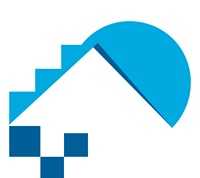Just-Released Report Identifies Solutions for Closing Chicago’s Racial Homeownership Gap
The report’s policy recommendations are the result of work between community organizations and different kinds of mortgage lenders, as part of the Mortgage Access Initiative led by Woodstock Institute and Neighborhood Housing Services of Chicago
CHICAGO – RealEstateRama – On Tuesday, Aug. 1, Woodstock Institute and Neighborhood Housing Services of Chicago (NHS) unveiled Phase 1 of the Mortgage Access Initiative (MAI), a new effort at putting forth tangible solutions for addressing extreme racial disparities in mortgage lending in Chicago and beyond. The report’s policy recommendations are the result of extensive collaboration with different types of mortgage lenders to break down the mortgage lending process and pinpoint the specific barriers to homeownership for borrowers of color.
The MAI comes on the heels of increased scrutiny around Chicago banks’ racially discriminatory lending practices. In 2020, WBEZ and City Bureau’s “Where Banks Don’t Lend” showed that lenders had originated more mortgages in a single White neighborhood of Chicago than all Black neighborhoods combined. These revelations also spurred the Chicago City Council to adopt the Lending Equity Ordinance in 2021, which compels banks that do business with the City to provide data on the demographic and geographic distribution of their lending.
“The fact that a low-income White borrower has a better chance of being approved for a mortgage loan than a high-income Black borrower means something’s broken. We can’t identify what that is without calling in these financial actors and giving them the space and comfort to re-imagine the mortgage process. And we can’t address the systemic forces preventing more people of color from purchasing homes and building wealth without the solution benefiting everyone,” said Horacio Méndez, President & CEO of the Woodstock Institute. “Our goal is to collaborate on solutions that prioritize the needs of borrowers of color while also removing the limitations faced by lenders that just don’t make sense.”
Policy recommendations outlined in Phase 1 of the MAI include proposing an equitable mortgage product, ensuring borrowers are offered the most affordable option that they qualify for, and reforming some internal practices at banks to better serve borrowers of color.
Anthony Simpkins, President and CEO of NHS Chicago, said, “This report contains real solutions to address the racial homeownership gap. We are calling on the FHFA, Fannie Mae, Freddie Mac, banks, and-non bank lenders to help us make these solutions a reality. There are millions of Black and Brown families ready to become homeowners today, and they deserve access to better loan products that don’t penalize them for the color of their skin.”
While introducing the report, panelists also discussed how the policy recommendations aim to address the intense scrutiny borrowers of color face throughout the mortgage lending process. Courtney Jones, Executive Director at Black Coalition for Housing, said, “Historically, banks look at Black people as lending risks. Under the current system, Black people feel like they’re being questioned with the intention of finding out they don’t qualify rather than working with a genuinely collaborative loan officer who wants this process to be successful. Successful banks have bankers who truly care about working with the community they serve.”
Woodstock and NHS plan to continue the MAI by engaging other actors in the mortgage process, including appraisals, real estate professionals, and government sponsored enterprises.
Learn more about the MAI and read the Phase 1 report by visiting Woodstock’s website.
###
Woodstock Institute advances economic and racial justice within financial systems through research and advocacy across Illinois and the United States. Among our areas of focus are predatory lending, access to banking, debt collection, and municipal fines and fees.
Neighborhood Housing Services of Chicago is an organization dedicated to creating opportunities for people to live in affordable homes, improve their lives, and strengthen their neighborhoods.
Contact:
Rob Mayo (Woodstock Institute) | | 909-471-6449
Sarah Brune (NHS Chicago) | | 402-719-6287
















